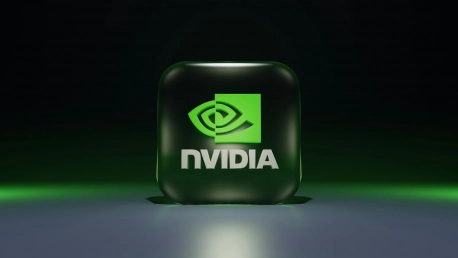Nvidia, at the forefront of graphics technology, is heralding a transformative era in software development, driven by AI. Jensen Huang, the company’s CEO, envisions a future where verbose traditional coding languages like Python and C++ give way to the simplicity of natural language, fundamentally altering how we communicate with computers. Imagine simply telling machines what to do using everyday English, and AI algorithms translating that into executable code.This innovation is fueled by impressive strides in Large Language Models (LLMs), which are redefining the essence of software engineering. As AI encroaches into various data domains, it promises to shift software development from an exclusive field dominated by complex technical skills to an intuitive, AI-assisted conversation between humans and machines.As Nvidia leads the charge towards this AI-centric future, they are shaping a new archetype for software developers. The upcoming breed of developers may no longer be constrained by traditional code but will engage in AI-mediated dialogue, guiding computing power with simple language commands. This shift promises to democratize programming, making it an accessible and powerful tool for a broader population, unfettered by the need for deep technical knowledge.
The Evolution of Programming: From Code to Communication
Gone are the days when the act of programming is synonymous with the laborious task of crafting intricate lines of code. As Nvidia paints the future of software development, it heralds an era where programmers are akin to architects who, with a few discerning strokes of dialogue, command AI to raise digital edifices. This futuristic vision posits English as the predominant language for software development, transforming programming into an exercise of clear and structured communication. No longer will developing applications be ensnared by the nuances of syntax or the intricacies of algorithms but will instead be propelled by the natural flow of human language.In this imminent reality, the role of a developer morphs dramatically, akin to a maestro conducting an orchestra of AI-driven synthesis. Programmers will articulate their intent, much like crafting a well-thought-out command, and the AI will act as a faithful executor, translating these desires into robust software solutions. From providing instructions for complex data analysis to commanding the development of intricate machine learning models, developers will find themselves orchestrating a symphony of digital orchestration, with AI serving as the virtuoso performers able to manifest human thought into digital reality.
Nvidia’s New Role in AI-Driven Development
Nvidia’s proactive involvement in this renaissance extends beyond mere prophecy. It ushers in a pragmatic shift in the software development arena by refining the pivotal tools that form the backbone of AI-fueled programming. CUDA, Nvidia’s very own GPU driver software, crystallizes as a staple in this transformative journey. It has been meticulously designed to ensure that the company’s GPUs become the engine room for the next wave of AI innovations. Through these efforts, developers are empowered to leverage unprecedented levels of computational performance, paving the way for AI applications that are more sophisticated and more deeply intertwined with human cognition than ever before.Nvidia’s commitment extends into the furnaces where the raw materials of tomorrow’s software are forged. By shaping development tools, programming models, and libraries in its CUDA suite, the company does not merely offer the means to execute code; it provides the anvil upon which the future of AI-assisted development is hammered into shape. These tools, sophisticated yet accessible, are the catalysts enabling developers to direct AI with more finesse through what essentially remains Python – albeit a version now amplified with the power to summon the full might of AI with the simplest of phrases.









